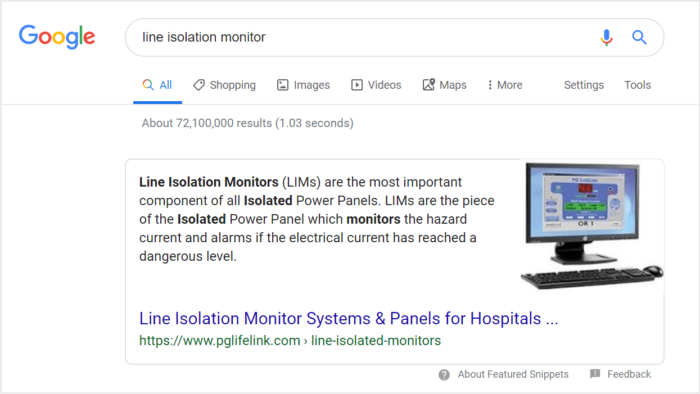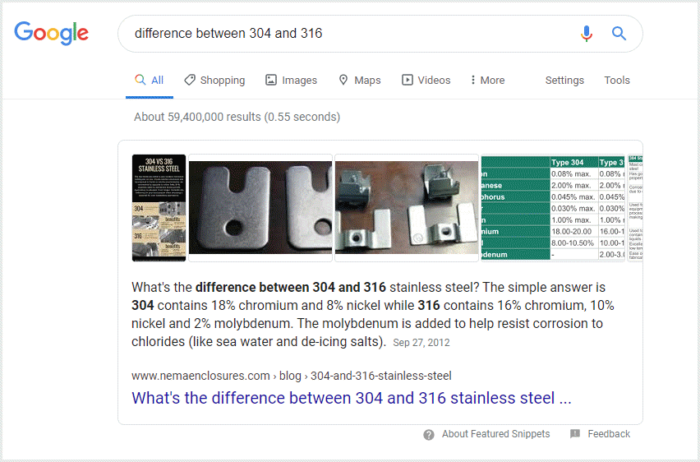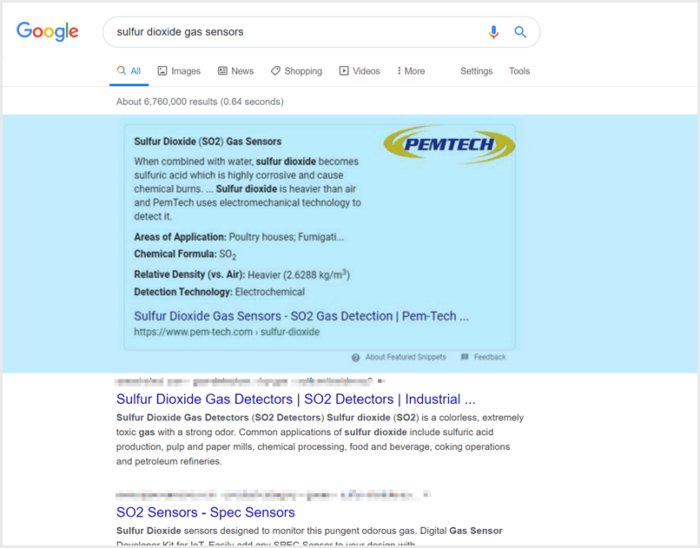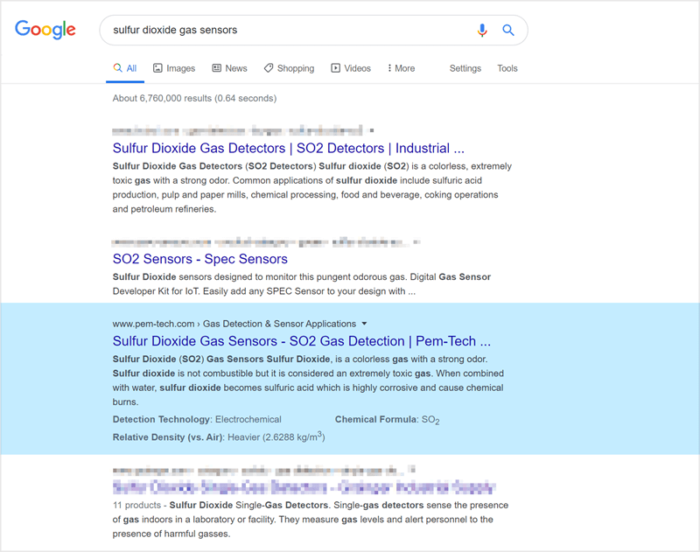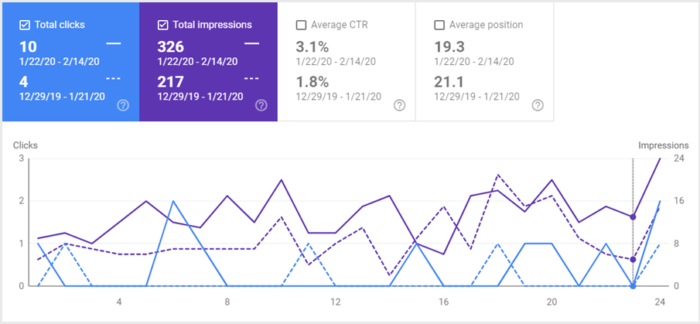February 18 2020
2020 Featured Snippet Update
The latest Google algorithm update, which was announced in late January, was focused on Featured Snippets and the number of times a website that had one could be shown in the search results for the same query.
Featured snippets appear above all regular organic results and contain a link to the website answering the query (shown below).
To learn more about Featured Snippets & other features within the organic search landscape, view our recent blog post on the subject.
Moving forward: If your company has a Featured Snippet for a specific keyword, then your URL will not be duplicated in the search results. If your company no longer has that featured snippet, then it most cases it should gain a position in the search engine results.
Featured Snippets are now considered the first organic search result on a page. Before the update, Featured Snippets were considered a Position Zero element, or a search result that wasn’t an ad but was also not part of the organic results. Position Zero elements could still have duplicate URLs that show up in the search results since they are neither organic nor an ad.
This new update affects Featured Snippets found at the top of the page and will be rolled out to move all right-side Featured Snippets to the top position in the search results. It will NOT affect other search result elements such as the People Also Ask box, knowledge boxes, or image/video carousels.
However, as the update rolls out, additional changes are being noticed. For instance, where once the Featured Snippet contained a single related image, we are now seeing image carousels show up inside the box itself. The example below is a featured snippet with multiple images shown above the text. Some of these images are from additional websites, not just the one being featured.
The image above shows a Featured Snippet with a gallery being shown where one single image used to be.
Most Featured Snippets are for informational searches. This means it’s not likely to have a huge impact on most searches that directly drive business to your website but could have an effect on companies that rely on informational results to grab a user’s attention at the start of the sales funnel.
What We Have Noticed (So Far)
We took a look at several B2B businesses with Featured Snippets before the algorithm change was rolled out. For the most part, the results showed that there was not a drastic change if a company lost a Snippet and gained a spot in the search engine result pages or vice versa.
Instances where we kept the Featured Snippet, but lost the regular listing:
When reviewing instances where websites kept their Featured Snippet, but lost their second link, we are seeing slight increases in organic traffic, impressions and click-through rate.
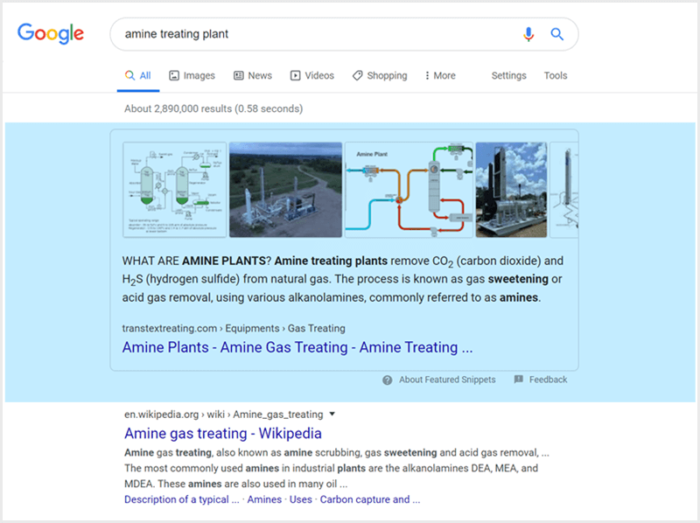
TransTex Treating lost their text link, but kept their Featured Snippet for the search “amine treating plant”. 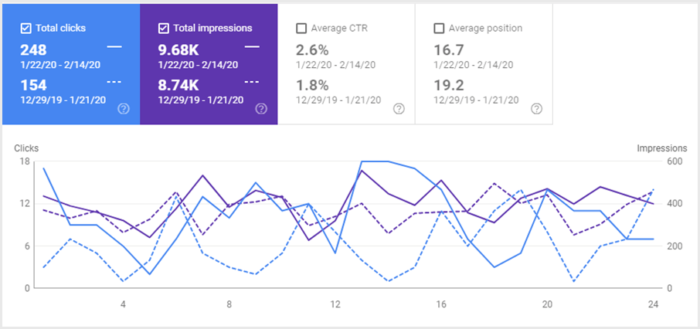
Comparing before & after results show a slight increase in organic traffic, impressions and click-through rate since the update was made and the text link was lost. 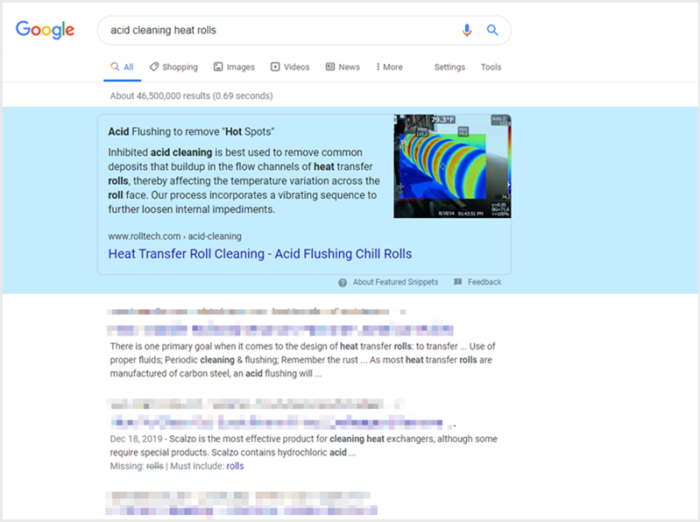
Roll Technology Corporation kept their Featured Snippet after the update for the search “acid cleaning heat rolls”. 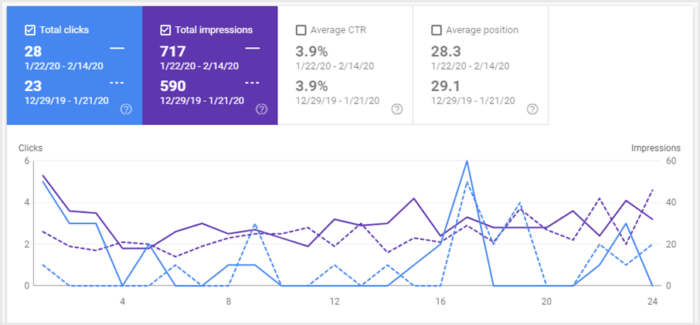
Comparing before & after results show an increase in organic impressions, while the click through rate remained the same, which led to a slight increase in organic traffic too.
While the small boost in traffic could be partially due to the comparison period including a holiday, the click-through rate (CTR) for both examples are trending at the previous level or better. This is something we will continue to monitor.
Example of a site that lost their Featured Snippet and kept their regular organic listing:
For example, when searching for “sulfur dioxide gas sensors” prior to this update, you would have seen two results for PemTech’s website. One at the top as a Featured Snippet, and another text link four results down. Now, when doing that search, PemTech no longer has a Featured Snippet, but its regular text result is showing slightly higher in the search results than it did before. You’d think the loss of this premium placement would have resulted in less traffic for their sulfur dioxide gas sensor page, and yet, the data shows that they have gotten better traction since the algorithm update.
The loss of the Featured Snippet resulted in an increased average click-through rate (CTR) for the landing page, which correlates with the organic traffic improvement to the page.
What This Means to You
As the search landscape continues to evolve, the changes are resulting in mixed messages. The deduplication of URLs means that the landscape is less confusing for the user and is more likely to provide the appropriate results. In the meantime, competition for the resulting space left by Featured Snippets being considered organic will likely cause more changes in the algorithm. Talk with your TopSpot Team about how to best use this information to your advantage. And focus on creating content that meets the needs of your audience, because that’s what matters most to Google.
We will be updating this post as more information comes in or other developments come up.


